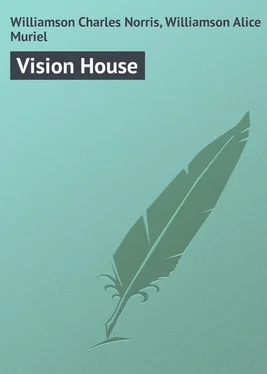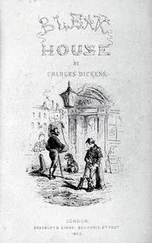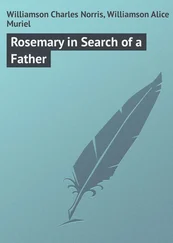Charles Williamson - Vision House
Здесь есть возможность читать онлайн «Charles Williamson - Vision House» — ознакомительный отрывок электронной книги совершенно бесплатно, а после прочтения отрывка купить полную версию. В некоторых случаях можно слушать аудио, скачать через торрент в формате fb2 и присутствует краткое содержание. Жанр: foreign_prose, на английском языке. Описание произведения, (предисловие) а так же отзывы посетителей доступны на портале библиотеки ЛибКат.
- Название:Vision House
- Автор:
- Жанр:
- Год:неизвестен
- ISBN:нет данных
- Рейтинг книги:5 / 5. Голосов: 1
-
Избранное:Добавить в избранное
- Отзывы:
-
Ваша оценка:
- 100
- 1
- 2
- 3
- 4
- 5
Vision House: краткое содержание, описание и аннотация
Предлагаем к чтению аннотацию, описание, краткое содержание или предисловие (зависит от того, что написал сам автор книги «Vision House»). Если вы не нашли необходимую информацию о книге — напишите в комментариях, мы постараемся отыскать её.
Vision House — читать онлайн ознакомительный отрывок
Ниже представлен текст книги, разбитый по страницам. Система сохранения места последней прочитанной страницы, позволяет с удобством читать онлайн бесплатно книгу «Vision House», без необходимости каждый раз заново искать на чём Вы остановились. Поставьте закладку, и сможете в любой момент перейти на страницу, на которой закончили чтение.
Интервал:
Закладка:
Belloc was giving a supper for her after the theatre, and Herté was there; a dark, haggardly beautiful young man who looked as if he had detached himself from one of his own wall decorations. Belloc had placed him next the star, not knowing whether Marise were really engaged to Lord Severance or not; and the first question the girl asked was about the table.
"Ah, you have my beloved violet-table!" he said, looking at her in the way he had with beautiful young women: stripping her with his eyes and dressing her all over again in a gown of his own creation. "I am glad – glad."
"You didn't know?"
He shook his head until a black lock fell over his pale forehead. "I did not. It was finished by the glorified cabinet-maker I employ: it appeared in the window of my place. You must see my place, now your rehearsals are over! You will want beauty to rest your mind – and you will want Me to design your dresses! An hour later the table was snapped up – gone from me forever."
"Ah, but who snapped it?"
Herté looked blank. "Your admiring friend, who knew it belonged, by right of beauty, to you."
"Thanks! But I want you to tell me his – or her – name."
"Are you not acquainted with so much of him?"
"I'm not. And I'm dying to be, because the gentleman is anonymous – a great unknown!"
"I am sure he is great, as a judge of art and ladies. But that is all I am sure of, beautiful Dolores."
"Monsieur Herté, you are hiding his secret!"
"I could hide no secret from you. I will tell you all I know. A boy messenger bought the table. A millionaire's boy messenger, perhaps! My manager informed me what had happened. We guessed at once there was a mystery."
"Couldn't you find out?" Marise persisted.
Herté shrugged his sloping shoulders. "Beyond a boy messenger no man can go. He keeps the gate with a flaming sword. But you will find out some day. Meanwhile, be content. You have the latest creation of my brain – of my heart. At present it is the one thing of its kind in existence."
Mrs. Sorel asked Severance if he had sent the table, which, she explained, Marise had found in her dressing-room on arriving there. It had been brought to the theatre by two boy messengers, full of flowers (not the boys, but the table), and no word had been left whence it came. Severance, bitterly jealous of the secret gift (which had, so to speak, taken all the blue paint off his Persian lilies), would gladly have claimed credit had he dared. But the real giver might announce himself at any moment, and be able to prove his bona fides : so Severance made a virtue of necessity. Belloc's supper-party was a "frost" for him, though he sat by the second prettiest girl. He hated Herté and the others, especially a millionaire member of New York's "Four Hundred," who was financially interested in Belloc's schemes – and in his leading ladies.
Severance would have given anything – short of his title and estates, and such money as came with them – to snatch the girl from all the men, who would go on admiring and making love to her when he was far away. He did not know how he could bear to turn his back and leave her to these Americans, who had so much money and so much "cheek." He felt as if he were throwing her to the lions – this exquisite morsel which he coveted for himself, but was unlikely to get on the terms he could offer. Almost, he wished that he had told her the truth in London, and said good-bye to her then. Almost, but not quite; for he simply had not been able to let her go like that. He had to be with her: he had to see the sort of men she would gather round her on the other side of the world.
Well, he had come; and he had seen; and he had made things harder for himself instead of easier. He did not know what he should do next. An arrangement, a compromise, must be thought of. When he spoke, he must have something to propose – some alternative or other. But what under heaven, or in hell, it could be, he had no clear inspiration yet.
Marise ordered the violet-table to be taken from the theatre to the Plaza Hotel, where she and her mother had a suite. She thought it would give her more pleasure there, where much of her time was passed, and the wonderful violets had not lost their freshness: they were so firm and vital that they looked as if they would never fade. But on the second night of "The Song," when Marise arrived in her dressing-room, another anonymous gift awaited her.
It was smaller than the table, but not less original; a black bowl, half full of water bright and pale green as aquamarines, on the surface of which floated three pink pond-lilies. The bowl stood on the star's dressing-table, and, switching on the electric lights, a gleam as of drowned emeralds sparkled under the lilies. Marise cried out in delight, and ran to look for a card. This time he would reveal himself! (She knew it was "he," and that it was the same man who had sent the table.) But no. There was neither card nor note. Messenger boys had brought the bowl. They had driven up in a taxi. If only Marise had dreamed of receiving a second gift from the same source, she would have watched – or even employed a detective. She was so excited and curious that she feared for her acting that night.
With the bowl and the lilies had come a large jar of crystals for tinting the water: green, glittering lumps, like precious stones from Aladdin's Cave, and that was precisely the label on the jar of jewels: "Aladdin's Cave." Marise was childishly thrilled. When Belloc peeped in, she showed her treasures, and learned that "Aladdin's Cave" was the name chosen by a queer artist, new, but famous already for his exhibition-shop in a cellar of that Bohemian haunt known as Greenwich Village.
Next morning the girl went there in a taxi: and when she had bought exotic enamels, and transparent vases filled with synthetic sapphires, she told "Aladdin" about the bowl. Like Herté, he shook his head. He was but another man who "could not go beyond a District messenger boy."
The stage door-keeper was now warned to find out what he could, if another anonymous gift appeared. Also, Céline was sent early to the theatre. Marise could not, however, quite bring herself to engage a detective. She was tempted to do so, and urged by her mother, who had visions of a mysterious millionaire ready to take the place of Severance if the Englishman failed after all. But the girl felt that to set sleuth-hounds on its track would kill romance. It would, she told Mums, be like deliberately rubbing the bloom off hothouse grapes before you ate them. And as it turned out, she was glad she had listened to sentiment; for on the third night her only offerings were chocolates and flowers ticketed conspicuously with their givers' names.
This was like a too abrupt ending to a fairy tale. But, after all, it was only the end of a chapter. On the fourth night a long blue-and-silver box lay across two chairs in the dressing-room. It looked like a box from a smart dressmaker, though no dressmaker's name was visible. "Has Mademoiselle ordered anything?" Céline inquired, as she untied the ribbon-fastenings.
No, Mademoiselle had ordered nothing that day – at least nothing for the theatre. She gave a little gasp as the Frenchwoman removed the box cover and a layer of silver-stencilled blue tissue paper. Underneath filmed a pale blue cloud which Marise snatched up and pronounced to be a "boudoir gown." It was made from a material which fashion names mousseline de soie one year and something else another. It was the blue of bluebells, banded with swansdown and embroidered with silver thistles. Altogether, it might have been created expressly for Miss Sorel by an admiring genius.
"From Herté!" exclaimed Mums.
But Marise knew better, and would pit her own "instinct" against her mother's any day. "No, from Him," she pronounced. "If this goes on much longer without my finding out who He is, I shall simply perish."
Читать дальшеИнтервал:
Закладка:
Похожие книги на «Vision House»
Представляем Вашему вниманию похожие книги на «Vision House» списком для выбора. Мы отобрали схожую по названию и смыслу литературу в надежде предоставить читателям больше вариантов отыскать новые, интересные, ещё непрочитанные произведения.
Обсуждение, отзывы о книге «Vision House» и просто собственные мнения читателей. Оставьте ваши комментарии, напишите, что Вы думаете о произведении, его смысле или главных героях. Укажите что конкретно понравилось, а что нет, и почему Вы так считаете.












